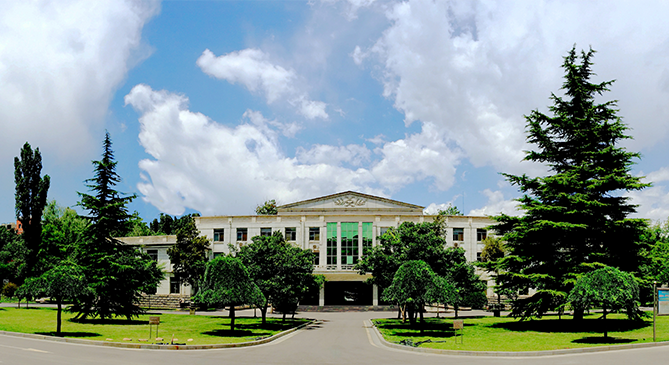The Institute of Coal Chemistry (ICC) is a high-tech R&D institute affiliated to the Chinese Academy of Sciences (CAS). ICC conducts fundamental and applied research activities, primarily in the fields of energy and environment, as well as advanced materials and green chemistry.
ICC was founded in Dalian as the Laboratory of Coal Chemistry, CAS in 1954. In 1961, the laboratory was relocated to Taiyuan, Shanxi and reorganized / expanded to an institute with its current name.
Since its foundation, ICC has been developed from a small laboratory with a staff of 64 persons into a national institute covering a comprehensive set of disciplines, which is highly influential both domestically and internationally. ICC now has a staff of 491 persons, among which 390 are scientific / technological personnel, including 1 member of CAS and 183 senior scientists.
ICC’s strategic and prospective research aims to optimize coal utilization as well as commercialize advanced technologies in its three core research areas.
Headquartered in Taiyuan, the capital of Shanxi Province, ICC has four national-level R&D units: the State Key Laboratory of Coal Conversion, the State Engineering Laboratory of Indirect Coal Liquefaction, the State Engineering Laboratory of Carbon Fiber Preparation and the Shanxi International Research Center of Coal Chemical Engineering and Technology. It also serves as the headquarter of the CAS Key Laboratory of Carbon Materials and the provincial-level Engineering Research Center for Pulverized Coal Gasification. In addition, ICC has a sound support system comprising its Strategy Study and Engineering Consulting Center, Chemical Engineering Process Design Center, Environmental Impact Assessment Center, Analytical Instrumentation Center and Literature and Computer Network Center.
ICC is authorized by the State Council to grant master and Ph.D. degrees. ICC has 36 doctoral advisors and 107 master’s advisors. ICC offers Ph.D. and master graduate programs in chemistry; chemical engineering and technology; materials science and technology; physical chemistry; inorganic chemistry; organic chemistry; chemical engineering; chemical technology; biochemical engineering; applied chemistry; industrial catalysis; materials physical chemistry; materials science; and materials processing technology. ICC also offers master’s degrees in environmental engineering, chemical engineering, and material engineering. The postdoctoral research program in chemistry is offered as well. ICC currently has 222 doctoral students and 178 master students.
The editorial offices of Journal of Fuel Chemistry and Technology and New Carbon Materials, both receive international recognition, are located inside the campus of ICC. The former is listed in Engineering Village, a premier online platform for engineering information.
ICC organizes a number of international conferences on coal science and C1 chemistry, such as the World Coal Science Conference, the Annual International Pittsburgh Coal Conference and the Sino-Japan Symposium on C1 Chemistry. Cooperative connections have also been established with renowned universities, research institutes and enterprises in the USA, the UK, Germany, Japan and South Korea, etc.
Playing an important role in China’s innovation system, ICC has won more than 245 national, CAS, provincial and ministerial awards. More than 780 domestic patents have been granted to ICC.

© Institute of Coal Chemistry, Chinese Academy of Sciences, All Rights Reserved
Address: 27 South Taoyuan Road, Taiyuan, Shanxi, P.R.China
Tel: (86)351-4041627 Email: sxicc_en@sxicc.ac.cn